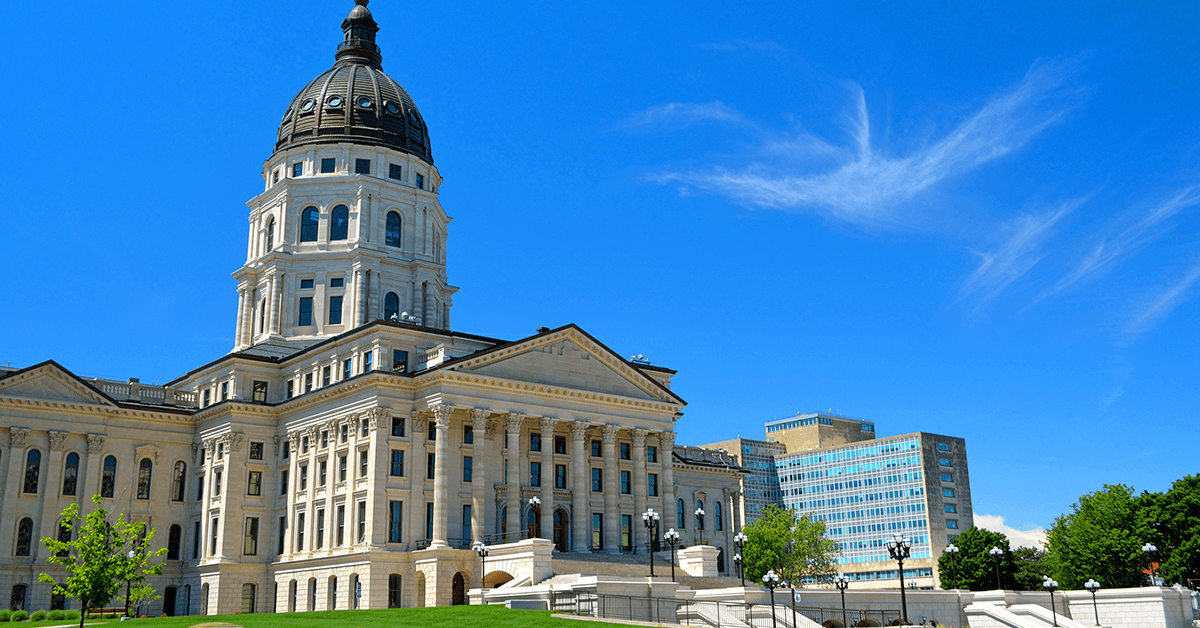
Protecting Tax Deductions Will Make Kansas Feel Like Home Again
May 29, 2019 UPDATE: The legislature failed to override the governor’s veto of this bill.
One of the famous lines from the movie The Wizard of Oz comes when Dorothy first arrives in Oz and says to her little terrier, “Toto, I have a feeling we’re not in Kansas anymore.”
Some 80 years later, Kansans looking at their tax returns are having the same feeling.
Of course, they are still standing in their homes in places like Wichita or Topeka or Salina, but they can’t help but notice they are paying more taxes than they did last year, and that certainly doesn’t feel right.
That’s because after Congress reformed the Federal tax code in 2017, many Kansas taxpayers no longer get to take the deductions they have received for decades on their state income taxes.
Because Congress doubled the standard deduction for Federal income taxes, many Kansas taxpayers are no longer able to claim charitable deductions, medical deductions or the mortgage interest or property tax deductions on their state income taxes because Kansas requires taxpayers who take the federal standard deduction to also take the state standard deduction. In short, homeowners are now being taxed more.
The Kansas legislature can fix this with some reforms of their own at the state level, but a recent tax bill that was passed in the House and Senate that included these fixes was vetoed by the governor because of other unrelated items in the bill.
Based on IRS data from the 2016 tax filings in Kansas, 247,110 Kansans claimed the mortgage interest deduction (MID) while 307,420 Kansans claimed the real estate property tax deduction.
It is expected that up to 75% of those who took the MID and up to 80 percent of those who deducted their property takes couldn’t do the same for the 2018 tax year.
The Kansas tax policies have had several facelifts and changes over the past decade, but the one thing that has been maintained throughout all those permutations has been the ability to claim the MID and property tax deductions on state income tax returns.
It seems the reason the governor vetoed the bill centers primarily around decoupling deductions for major Kansas corporations when it comes to foreign money.
It’s become a lightning rod of sorts and in turn has become a political football. And yet, lost in that scrum is the income tax deductions.
The legislature returns to session on May 1 and negotiators are expected to craft another bit of proposed legislation.
Many believe that if the income tax deductions were alone by themselves in a “clean bill” and not tied to other tax issues, they would pass with wide bi-partisan support and would be signed by the Governor.
But tax legislation is never that simple. There are always caveats and codicils. And there’s always politics.
It is difficult to pass any piece of tax legislation with any perceived fiscal impact on the state at the same time that the Governor wants to pass a school funding plan or Medicaid expansion. These are big ticket items that are going to cost a lot of dollars.
So timing is important, too.
And the data that is being culled this quarter is starting to show the adverse effects of how doing nothing will impact homeowners.
“The two key reports we need are the actual revenue numbers from the state of Kansas that came out for March and they were $24 million above estimates,” said Patrick Voglesberg, Government Affairs Director for the Kansas Association of REALTORS®. “A majority of that cash windfall is coming from an income tax increase from individuals (about $23 million). We believe that’s the amount of new revenue the state is getting because people aren’t able to deduct their mortgage interest or their property taxes or their charitable contributions.”
Voglesberg added that the next big report comes in April.
“Our budget estimators will calculate how much revenue the state has and project a profile and if that number comes in higher, that will be positive for the tax bill,” he said. “In short, the policy has to prevail. These are historic deductions that have existed in Kansas for decades and the legislature has consistently protected them. That must continue.”
Tax bills are often the last train to leave the station in state legislatures, so it’s not surprising to anyone that this will drag into May and likely be the final item up for discussion in the legislative session.
But it’s important for all Kansans that their elected officials in the House, the Senate and the Governor’s mansion find a way to click their heels three times and remember that “there’s no place like home.”
Sign Our Petition To Support Homeowners in Kansas
Tell your elected officials in Kansas to restore the ability to itemize deductions on income taxes and to keep fighting for property taxpayers.





